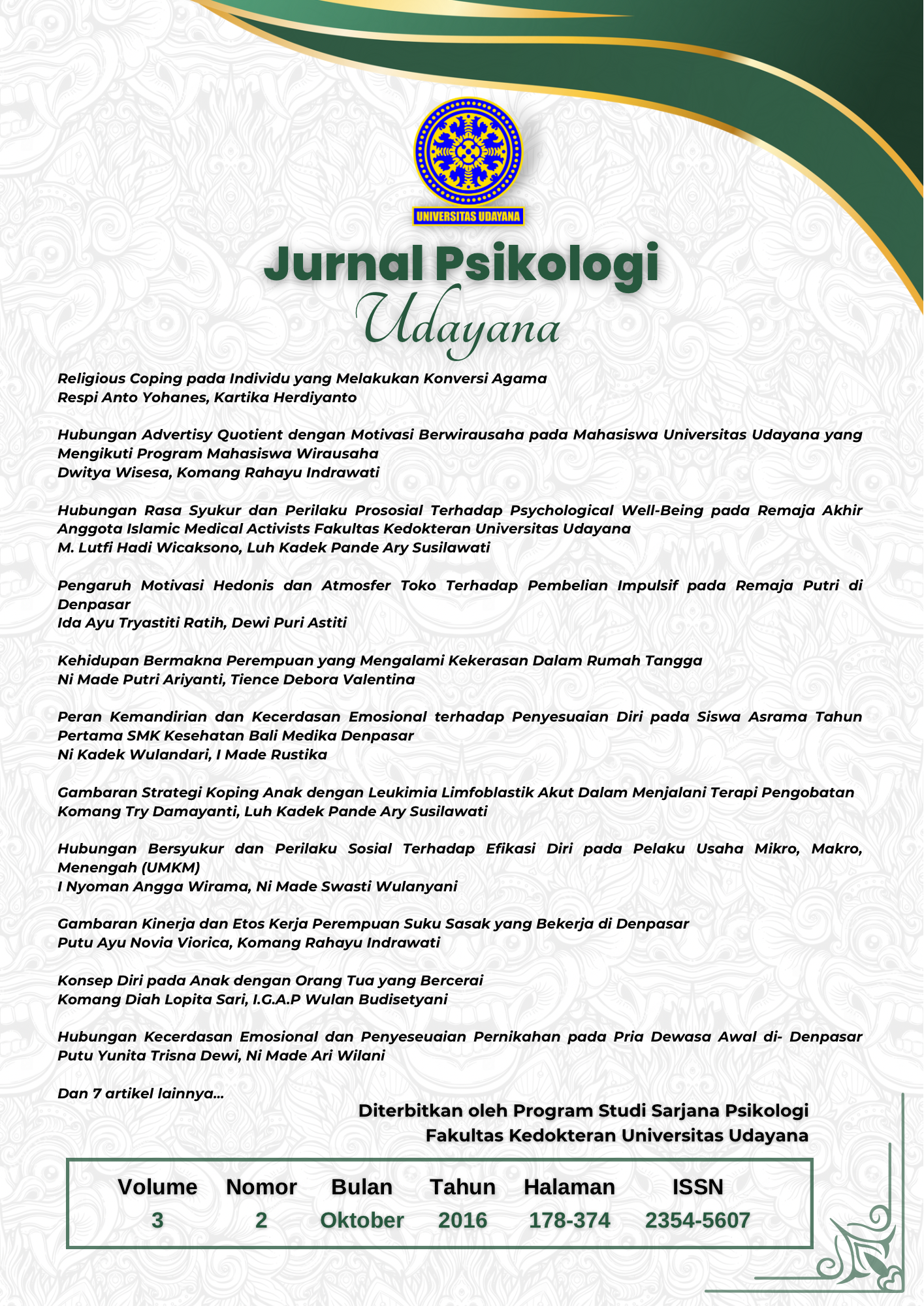KONSEP DIRI PADA ANAK DENGAN ORANGTUA YANG BERCERAI
Abstract
For couples who have built a family of course have to hope to become an intact family, prosperous, full of warmth, and affection. Building a happy family would not be complete without having a descendant or child as the future generation. Every married couples had hopes of having children who are physically and mentally healthy, smart, and can be a pride for the family. To have a child with such expectations, of course parents have a very significant role, that parents are expected to watch each stage of development and needs of children in order to be passed and met properly. The couple who foster home must not be separated from a conflict. If the conflict in the household lead to divorce, and the couple decided to stay together with the ongoing conflict, then it can affect the psychological condition of children. As for the purpose of this study is to describe the self-concept in children whose parents are divorced but still living in one house, through interviews and observation methods.This qualitative study uses a case study approach. The sampling technique used was purposive sampling. Subjects in this study was a girl who was 11 years old whose parents divorced but still living in one house. Data are used in this research is observation, interviews, and field notes. The data were analyzed using technique of Stake analysts. Based on the analysis, it was found that there were 15 categories can be grouped into three patterns. The patterns are 1. Causative factors that influence a child?s self-concept; 2. Psychological characteristics; 3. The dimensions of self-concept in children with divorced parents. Children with divorced parents are expected to be open to problems encountered, and the child is expected to open up to the social environment in the company of those close to and trusted by the child, so the child can change aspects of their life, towards positive self-concept.Keywords : self-concept, child, divorced parents, divorce
Downloads
Download data is not yet available.
Published
2016-10-01
How to Cite
SARI, Komang Diah Lopita; BUDISETYANI, I Gusti Ayu Putu Wulan.
KONSEP DIRI PADA ANAK DENGAN ORANGTUA YANG BERCERAI.
Jurnal Psikologi Udayana, [S.l.], v. 3, n. 2, oct. 2016.
ISSN 2654-4024.
Available at: <https://ojs.unud.ac.id/index.php/psikologi/article/view/25241>. Date accessed: 23 feb. 2026.
doi: https://doi.org/10.24843/JPU.2016.v03.i02.p10.
Issue
Section
Articles
Authors who publish with this journal agree to the following terms:
- Authors retain copyright and grant the journal right of first publication with the work simultaneously licensed under a Creative Commons Attribution-ShareAlike 4.0 International License that allows others to share the work with an acknowledgement of the works authorship and initial publication in this journal.
- Authors are able to enter into separate, additional contractual arrangements for the non-exclusive distribution of the journals published version of the work (e.g., post it to an institutional repository or publish it in a book), with an acknowledgement of its initial publication in this journal.
- Authors are permitted and encouraged to post their work online (e.g., in institutional repositories or on their website) prior to and during the submission process, as it can lead to productive exchanges, as well as earlier and greater citation of published work (See The Effect of Open Access).













